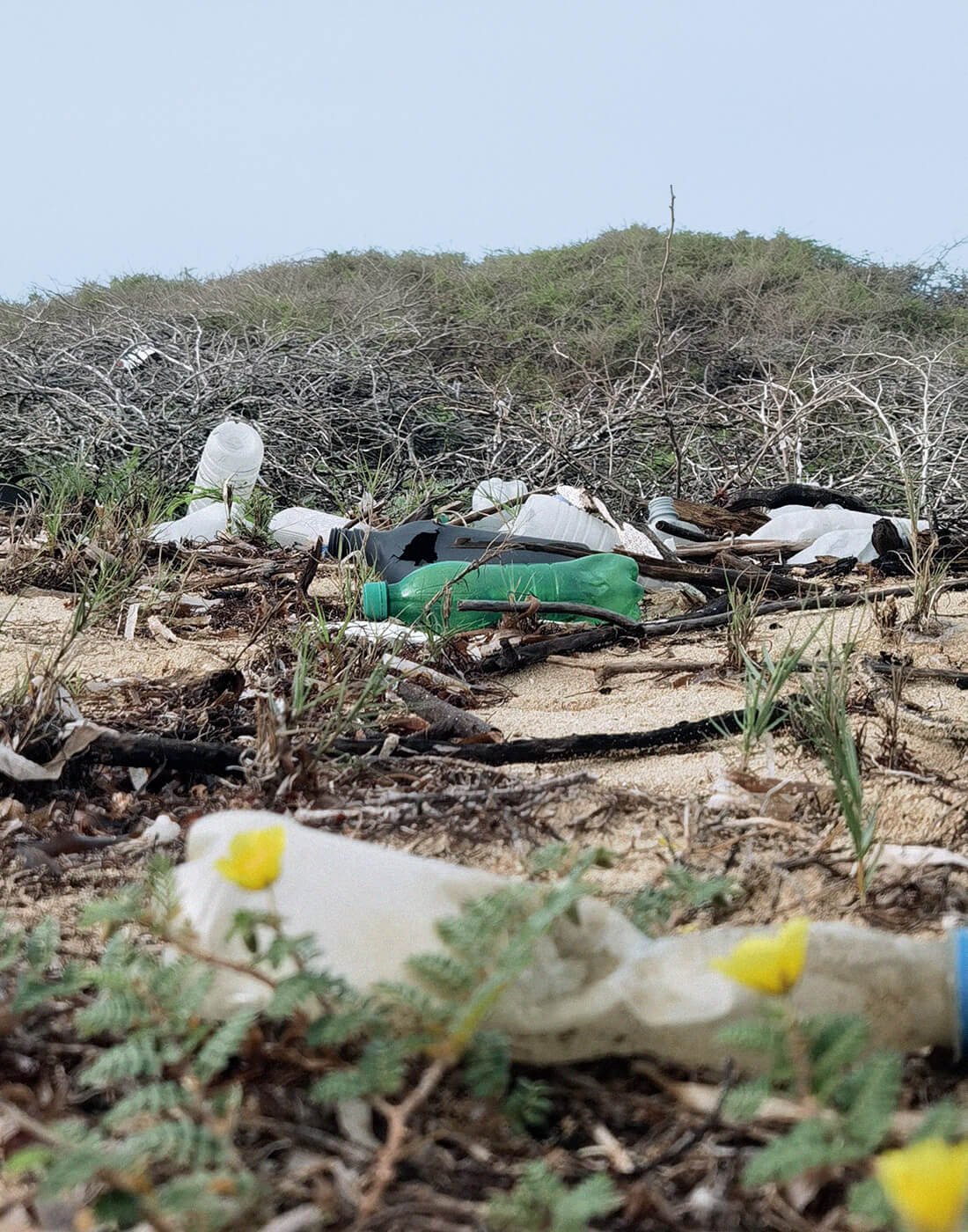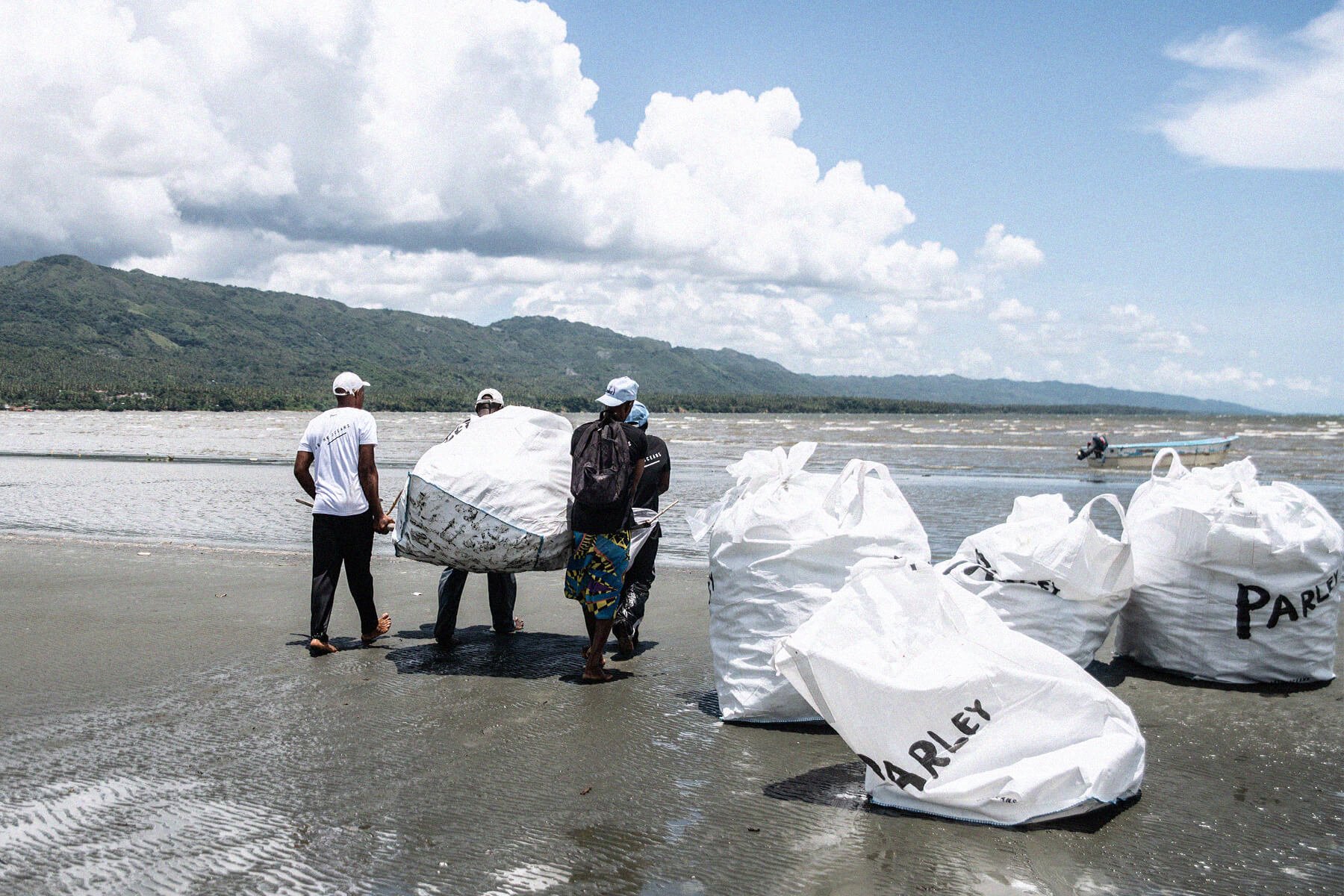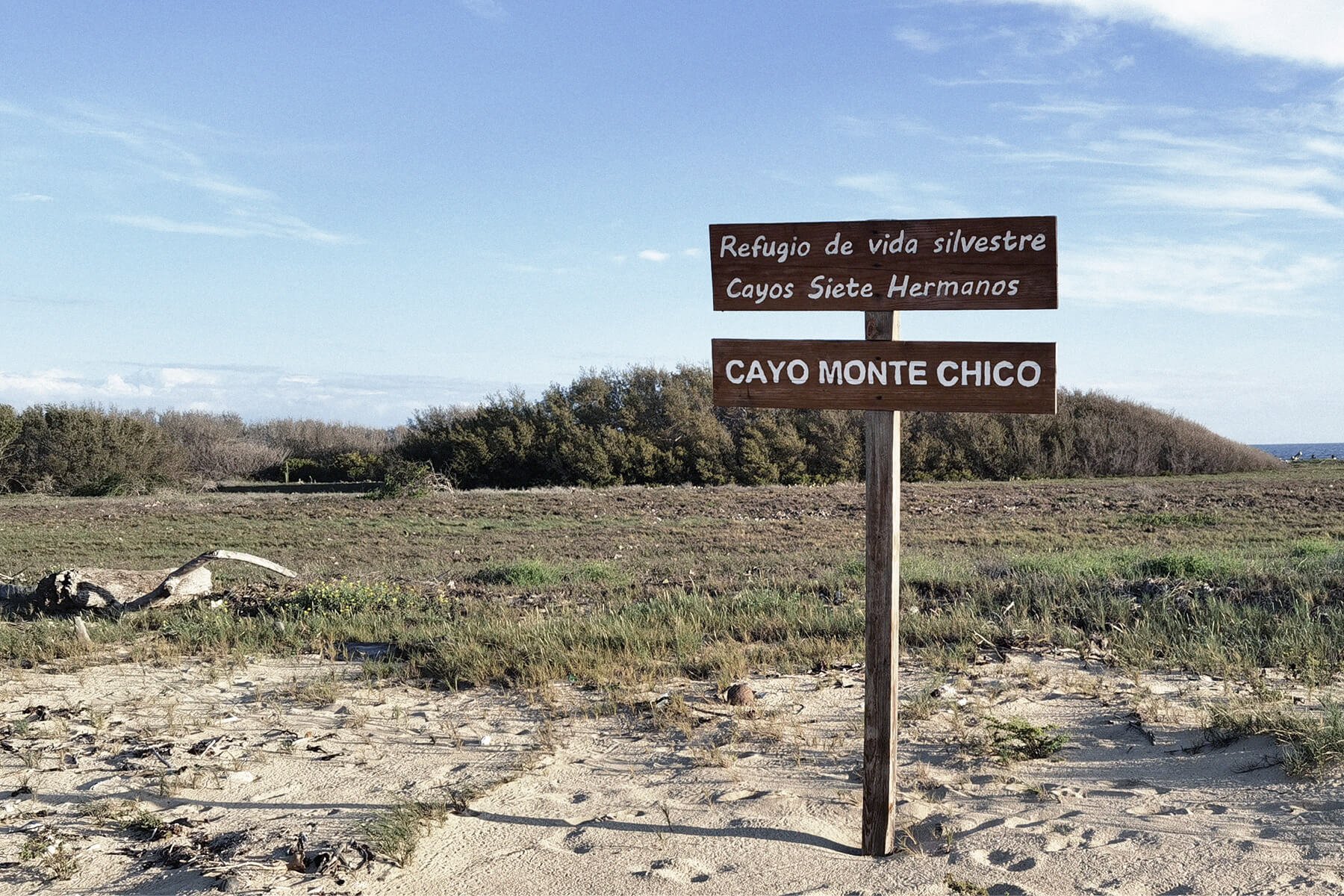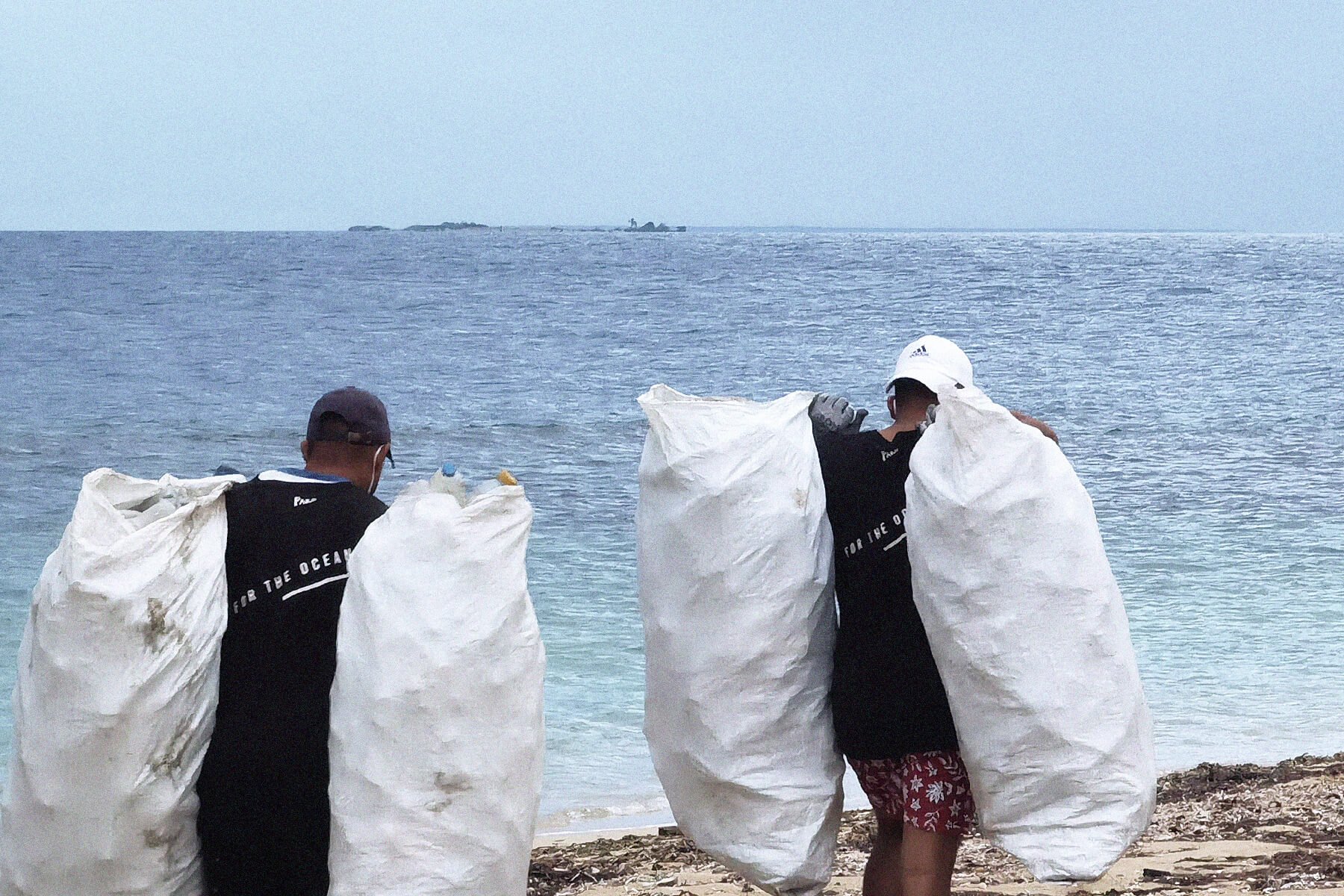People: Eddy Frank Vasquez
WE CHAT WITH EDDY FROM PARLEY DOMINICAN REPUBLIC — A 27 YEAR-OLD UNITED NATIONS YOUNG LEADER NEGOTIATING ON BEHALF OF SMALL ISLAND STATES AT COP WHILE WORKING TO COMBAT PLASTIC POLLUTION IN THE CARIBBEAN ISLAND NATION
With every purchase of select Type 02 sunglasses, the global Clean Waves community is supporting Parley Dominican Republic and their work on the Cayos Siete Hermanos – a group of seven remote and uninhabited islands off the country’s north coast. Looking after the ocean’s interests in the country is Eddy Frank Vasquez, Parley’s country coordinator for the Dominican Republic. Eddy has been a part of his nation’s delegation to the COP climate conferences since he was a 20 year-old student. Seven years later, he is now collaborating with the national government on their new waste management law and negotiating on behalf of 30 Small Island States at the recent COP meetings. We sat down with him to learn more.
WHAT DO YOU LOVE ABOUT THE DOMINICAN REPUBLIC?
It’s a tropical paradise. I love the people, the culture, the music, the food and of course the nature. The country has a lot of mountains, it has its own kind of desert, a lot of mangrove forests and terrestrial forests as well. We have the warm waters of the Caribbean with healthy coral reefs and a lot of marine mammals: whales, dolphins, manatees and turtles. Something that I really like about my country is that for example, a couple meters away from me now, I can see some turtles laying their little eggs. I love getting up early to walk around the shore to watch these baby turtles scuttling around the coast – it’s really heartwarming. One of my favorite places is Samaná Bay, where at the beginning of every year, humpback whales visit to have their children. These enormous, colorful marine animals come to our country to enjoy the things that we are so sadly destroying. We shouldn’t be taking these creatures for granted.
HOW DID YOU COME TO WORK IN OCEAN CONSERVATION?
I’ve always loved the oceans since I was a little boy, and as I got older I started to think a little bit more about what we could do as individuals, and as a society, to protect them, so when I was in high school I started to develop some initiatives based on how to get young people engaged in this specific cycle of environmental education, plastic collection and recycling. A couple of weeks after the huge plastic wave that washed up on the coast of Santo Domingo, and made the news all over the world, I started to work for Parley for the Oceans. It was the biggest environmental crisis my city has faced in the last 50 years. It opened everybody’s eyes to a problem that is now very much knocking on our doors, so, with Parley I began to work on a nationwide program of cleanups and education talks, while also helping the government and Ministry of Environment to implement solutions in order to avoid plastic pollution in rich, natural, and protected areas of the Dominican Republic.
ONE OF THESE AREAS ARE THE CAYO SIETE HERMANOS ISLANDS WHICH CLEAN WAVES WORKS TOWARDS PROTECTING – WHAT ARE THE ISLANDS LIKE?a
That’s right. The Cayo Siete Hermanos is a wildlife refuge of seven sandy little coral cays northwest of the Dominican Republic, and every single one is different from each other. Some islands have forests, others have cactus, or crops, or iguanas – there’s a lot of biodiversity both below and above the water. The first time I visited was in 2018, on a week-long expedition with Parley. It was so beautiful I was speechless, and I was so grateful to be there. I remember the amazing views, the sunrises and sunsets, and snorkeling the reefs. I remember making a hole in the sand and realizing that much of that plastic dated from years and years back. It was a hard feeling, seeing how industry-led consumer culture has led us to destroy amazing places such as the Cayos.
We spoke to the Ministry of Environment, and they told us these islands had never been cleaned before – we were the first, which really caught our attention. Now we conduct yearly cleanup expeditions to the islands. The Cayos are the DR’s primary nesting site for a species of bird called boobies, so we conduct these expeditions outside of their nesting season which is between May to September. We set out early, around 4.30am, and come back at the end of the day with about 25 silo bags full of plastic – every single time. Even though these islands are uninhabited and a little far from the coast, one of the biggest rivers in the country, the Rio Yaque del Norte meets the sea here, and this river flows through many provinces that don’t have proper waste management or collection. So right now we are installing the first river boom in the country, along the Rio Yaque del Norte in the Santiago Province. It will allow us not just to intercept all trash that is polluting the river, but also give us data on the quantity and types of waste, and where that waste is generated.
“Right now we are installing the first river boom in the country, along the Rio Yaque del Norte in the Santiago Province. It will allow us not just to intercept a lot of the trash that is polluting the river, but also give us data on the quantity and types of waste”
WHAT ELSE IS PARLEY WORKING ON IN THE DR?
Since we established our operations here in 2018, we’ve held around 210 cleanups – but cleanups are not the only thing we do. We try to create conversations between the government and the municipalities to prevent these situations from happening. In 2020 we created the first Ocean Guardians program for Sanchez in the Samaná Province. It's an amazing project because we have a team of around 15 former fishermen that go out on a boat every single day to clean the huge mangrove forests of the Gladys del Baja National Park. There are no people living around there, but you realize how that hasn't stopped the plastic crisis in that specific side of the country. The team has also been doing amazing work through the Parley AIR education program; we’ve started an Ocean Educators program, where we started to develop the skills of people like these former fishermen to become ocean educators. It's been an amazing experience because many of them didn't even finish school, but with the experiences of life and the knowledge that they have – the traditional and local knowledge – they have been able to motivate and inspire students in four different schools in the municipality of Sanchez. We have also created plastic collection points at schools around Samaná Bay, near where the humpback whales visit every year.
In 2020, with funds from the German government, we started a project called PROMAR (Prevention of Marine Litter in the Caribbean Sea) promoting circular economy solutions in the Dominican Republic, Costa Rica, and Colombia. For example, we have an interesting project facilitating plastic collection mechanisms from more than 800 houses close to the Osama River in Santo Domingo – though it's not only about collecting, but also going house-to-house raising awareness of what they are doing with their consumption habits.
We’ve also had some interesting partnerships with the government of the Dominican Republic, developing the skills and capacities of the officials of the Ministry of Environment so they can carry out awareness campaigns, and also create proper plans for on-the-ground cleanups. We helped provide technical assistance to the ministry in implementing the new waste management law – which now will be coordinated on a nationwide level rather than being delegated to individual municipalities – and provide technical assistance to create that standard producer responsibility policy as a national plan in the Dominican Republic, and getting prevention and minimization targets into law.
IT'S REALLY IMPRESSIVE THAT SOMEONE AS YOUNG AS YOURSELF IS ADVISING THE GOVERNMENT, AND EVEN SPEAKING ON BEHALF OF THE COUNTRY AT COP. HOW DID YOU BECOME PART OF THE COUNTRY’S DELEGATION AT THE AGE OF 20 – AND RECENTLY BEING NAMED A SUSTAINABLE DEVELOPMENT GOALS YOUNG LEADER BY THE UN?
I call myself a strange mixture of psychology, diplomacy and environmentalism. While I was at university, I studied psychology because it offers very good tools to understand the complex connections between human behavior, thoughts and feelings, and the places that are around us – and how we can connect with nature. While doing so, I spent four years working on a project with vulnerable communities, learning about the historical contexts of the social inequalities they face, and later with a group of friends, founding Juventud Sostenible, an organization which encourages young people to engage with the environment, and ensures they have a seat at the table to review public policy decisions. So, I've been involved in the sustainable development agenda since 2012, and a member of the Dominican delegation to COP since 2015. I was the youngest person in the delegation, and last year I was appointed by the Dominican government as the thematic coordinator for adaptation to this climate negotiation, specifically for the Alliance of Small Island States (AOSIS), which means that I not only represent the voice of the Dominican Republic at these negotiations but also of the more than thirty island states present. And the fact that I'm doing it for islands is a little bit more complex, because as islands, we are the ones most vulnerable to the climate crisis. This led me to being selected as a Young Leader for the Sustainable Development Goals by the United Nations. It's been such a privilege, but also a huge responsibility because right now I have the opportunity to talk to top UN officials, industry leaders and government officials, and also to connect with other young activists doing amazing work all around the world to protect our climate and the oceans.
“Young people are not the future of tomorrow, we are the living force of today.”
WHAT WENT DOWN AT THE LAST COP? WAS IT FRUSTRATING TO SEE THE PRESENCE OF FOSSIL FUEL LOBBYISTS THERE?
I had a lot of mixed feelings because from one side my colleagues and I were doing our best next to get to an agreement where we can have better nature-based adaptation measures to properly deal with the climate crisis. But it was difficult to maintain the motivation and energy when you have so many other countries that are not taking the necessary steps to avoid this crisis. Sometimes I faced other negotiators just trying to defend their economic interests, ignoring that there are a lot of people living in small island states whose ways of life will just disappear.
It was frustrating to see the presence of fossil fuel lobbyists at the conferences. To have to listen to them speaking about their visions of a ‘climate net-zero resilience future’ when we realize that their actions are not enough to avoid a huge climate crisis for countries such as the Dominican Republic. Sometimes you think that nobody really understands the level of urgency that is needed for us to take this on.
WHAT GIVES YOU HOPE?
The only thing that gives me hope is seeing more and more people getting involved, young people. Young people are not the future of tomorrow, we are the living force of today. The climate crisis has created a lot of social and economic inequalities between people and countries, to our health, biodiversity, and economy. What keeps me motivated is going to these conferences and knowing the power that we, as young people have – we are not scared to speak our minds.









